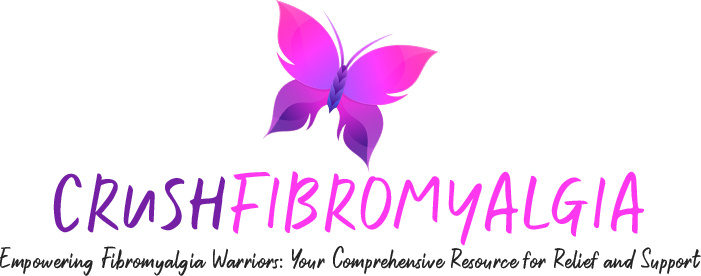Last Reviewed and Updated: November 2023
Living with fibromyalgia can be a rollercoaster ride, with flare-ups causing increased pain, fatigue, and other symptoms. Understanding the triggers that can exacerbate fibromyalgia symptoms is crucial for managing the condition effectively. In this blog post, we will explore the top 10 triggers of a fibromyalgia flare-up and provide practical tips on how to avoid them, helping you regain control and reduce the impact of these episodes.
Medical Disclaimer: Please note that we are not medical professionals, and while our info is heavily researched, the information provided in this blog post is for informational purposes only. It should not be considered as a substitute for professional medical advice, diagnosis, or treatment. If you are experiencing any eye-related symptoms or have concerns about your health, it is crucial to consult with a qualified healthcare professional for proper evaluation and personalized medical advice. Always seek the guidance of a medical professional before making any changes to your healthcare regimen.
Affiliate Link Disclosure: Some of the products on this page may be affiliate links, and we may receive compensation if you click on those links. However, please rest assured that as sufferers of Fibromyalgia ourselves, our recommendations are based on our honest evaluation and a ton of research.
1. Stress

Stress is a common trigger for fibromyalgia flare-ups. Implementing stress management techniques such as meditation, deep breathing exercises, and engaging in relaxing activities can help reduce stress levels and minimize the risk of flare-ups.
2. Sleep Disturbances

Lack of quality sleep or disruptions in sleep patterns can intensify fibromyalgia symptoms. Establishing a regular sleep routine, creating a sleep-friendly environment, and practicing good sleep hygiene can promote better sleep and reduce the likelihood of flare-ups.
3. Overexertion

Pushing beyond your physical limits can lead to flare-ups. Prioritize pacing and listen to your body’s cues. Be mindful of your activity level and incorporate regular breaks and rest periods throughout the day.
4. Weather Changes

Changes in temperature and humidity can trigger fibromyalgia symptoms. Dressing appropriately for the weather, using heating pads or blankets during colder months, and staying well-hydrated can help mitigate the impact of weather-related triggers.
5. Physical and Emotional Trauma

Previous physical or emotional trauma can contribute to flare-ups. Engaging in therapies such as cognitive-behavioral therapy (CBT) or seeking support from a mental health professional can assist in addressing and managing trauma-related triggers.
6. Dietary Factors

Certain foods and additives may worsen fibromyalgia symptoms. It’s advisable to keep a food diary to identify any potential triggers, and consider working with a registered dietitian or nutritionist to develop a personalized dietary plan.
7. Hormonal Changes

Hormonal fluctuations, particularly in women, can influence fibromyalgia symptoms. Being aware of your body’s hormonal cycles and discussing symptom management strategies with your healthcare provider can help minimize the impact of hormonal trigger
8. Environmental Sensitivities

Chemicals, strong odors, and allergens in the environment can trigger symptoms. Identifying and avoiding triggers in your surroundings, such as using fragrance-free products or maintaining good indoor air quality, can help reduce exposure and limit flare-ups.
9. Lack of Movement

Prolonged periods of inactivity or a sedentary lifestyle can worsen fibromyalgia symptoms. Incorporating gentle exercise and movement into your routine, such as walking, swimming, or yoga, can improve overall well-being and help manage flare-ups.
10. Medication and Treatment Changes

Changes in medication, starting new treatments, or discontinuing established therapies can potentially trigger flare-ups. It’s important to communicate any changes to your healthcare provider and follow their guidance to minimize the risk of exacerbating symptoms.
Identifying and avoiding triggers is essential for managing fibromyalgia flare-ups effectively. By recognizing stress, sleep disturbances, overexertion, weather changes, and other potential triggers, you can take proactive steps to reduce their impact. Remember to consult with your healthcare provider for personalized guidance and explore strategies that work best for you. By implementing preventive measures and making lifestyle adjustments, you can regain control over your fibromyalgia and improve your overall quality of life.

